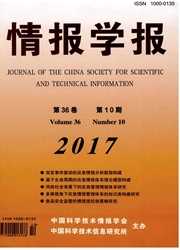

 中文摘要:
中文摘要:
首先,针对我国高新产业企业如何从基础科学研究中获益的问题,本文基于专利对科学文献的引用和重组搜索(recombinatory search)理论,建立一个分别分析国内和国外基础研究成果直接和间接影响专利有效性的概念模型,并提出相应的理论假设。其次,采用1976~2010年中国7个高新产业在美国专利商标局(USPTO)申请的3145份专利数据,对理论假设进行了零膨胀负二项回归(zero—inflated negative binomial regression)检验。最后,实证结果表明,发明人引用国内科学文献对中国高新产业的技术创新质量具有显著的非线性(U型)影响,并加强了技术知识构件对技术创新质量的促进作用;然而,发明人引用国外科学文献对技术创新质量,以及技术知识构件与技术创新质量的关系并没有显著的影响。显然,中国和外国科学文献对中国高新产业技术创新质量的影响机理是截然不同的,后者作用的发挥更多受到西方高强度知识产权保护,我国高新产业企业研发人员吸收能力和前沿新知识隐性特征的限制。
 英文摘要:
英文摘要:
First, aiming to answer the question of how high-tech firms benefit from basic scientific research, we put forward a concept model and several hypotheses analyzing the direct effects and indirect effects of domestic and foreign scientific literatures on the patent usefulness respectively, based on patent scientific reference and recombinatory search literature. Second, adopting the 3145 USPT0 patents from seven Chinese high-tech industries, we empirically test our hypotheses with zero-inflated negative binomial regression model. Last, our results indicate that references to domestic scientific literature have a U-shaped influence on technology innovation quality and enhance the positive effects of technological knowledge components on technology innovation quality; however, references to foreign scientific literature have no significant effects on either technology innovation quality or the relationship between technological knowledge components and technology innovation quality. Obviously, domestic and foreign scientific literatures have different mechanisms of influencing technology innovation quality, and the roles played by the later are constrained by strong intellectual property protection in West countries, the absorptive capacity of Chinese corporate researchers and the tacitness of new frontier knowledge.
 同期刊论文项目
同期刊论文项目
 同项目期刊论文
同项目期刊论文
 期刊信息
期刊信息
